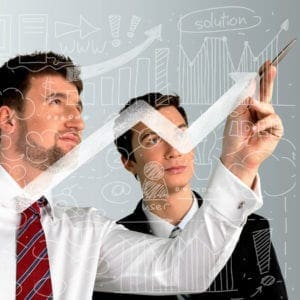 We share more and more information, and the boundaries between private and public life are increasingly blurred. Our evaluations of various products and services are now available and visible to a growing number of people, both on platforms directly linked to hospitality, like TripAdvisor or booking.com, and more general sites and social media such as Facebook. All of this information constitutes an incredible opportunity for the hospitality sector.Ê
We share more and more information, and the boundaries between private and public life are increasingly blurred. Our evaluations of various products and services are now available and visible to a growing number of people, both on platforms directly linked to hospitality, like TripAdvisor or booking.com, and more general sites and social media such as Facebook. All of this information constitutes an incredible opportunity for the hospitality sector.Ê
Imagine that you have the possibility to perfectly know your guests, their preferences, their experiences, their friends and their personalities. Such an information base would allow you to meet your guests’ current needs, but also predict their future needs. This possibility has become reality with the use of big data which offers, by collecting, compiling and analyzing a large number of data, to increase what you know about your guests. This data can be collected on different web platforms as well as by observing, coding and giving meaning to the behaviors of guests during their stay or by analyzing their behaviors on the hotel’s website.
Psychometrics
An increasing number of statisticians and psychologists are exploring new ways to make sense of the dizzying amount of data that can be collected or purchased for strategic use. For instance, Michal Kosinski, Assistant Professor of Organizational Behavior at the Stanford Graduate School of Business, focuses his research in Òthe mechanisms linking psychological traits with a broad range of organizational and social outcomesÓ, among of which is consumer behavior. Using sophisticated psychometrics, he has developed a way to analyze people with disconcerting precision based solely on their Facebook activity. He has also warned of the risks such techniques represent if they were put to use by populist political campaigns, or other ethically reprehensible misinformation efforts.
AdvantagesÊand risks
The use of big data can thereby easily improve a hotel’s online visibility as well as its communication strategies. While the promises associated with big data are important, it is nevertheless necessary to remove any ambiguity around their efficiency. Collecting and storing data will be useful only when they are analyzed, used and transformed into effective and thoughtful strategies.
The analysis of the guests’ behavior on the hotel’s website or on any other web platform allows the hotel to identify the elements generating the most sharing, those that favor bookings but also those that hinder bookings. Choosing a picture based on a discussion between a few colleagues within the sales and marketing team will never be as effective as evaluating customers’ preferences in real time. A deep analysis of the data available also makes it possible to identify the most profitable clients, those who travel the most, who consume the most, but also those who will be most likely to share their experiences on social networks.
Big data offers tremendous opportunities but it includes a risk of significant backlash. By its very nature, data collection may appear intrusive: a guest will be happy to be offered a bottle of wine that he particularly likes, but he will surely be less thrilled if he learns that you have chosen this kind of wine on the basis of his Instagram photos. It is important to handle data carefully, hoteliers have to know their guests, not spy on them. It is a fine line, and it must be clear to both hoteliers and the customer where the limits are.
Personalized experience
What is luxury today? Tranquility? Experience? Whatever our conception of luxury, it will be the ability of the hotel to meet our needs that will determine our satisfaction. Data collection enables the hotel industry to adapt its definition of luxury and experience to each guest. The whole stay could now be adapted to the individual guest’s profile. Thus, some hotels have seen their incremental room revenue increase significantly through the customization of their offers. The storage data from regular guests makes it easy to adapt the reception and offers made to each guest (welcome cocktails, suggestions of wine or menus, temperature of the room, brand of shampoo, etc.). Why offer a bottle of champagne to someone who does not drink?
Guests are no longer looking for luxuries solely in the quality of services offered, but also in the ability of hotels to offer them a unique experience. As such, the experiential hotel industry has taken a remarkable turn in recent years. Hotels compete for ingenuity to create the most original concepts, the most personal experiences. In order to ensure a highly personalized service, while maintaining high quality standards, hoteliers can count on big data.
 Although too many hoteliers still underestimate the gains associated with data analysis, those who have taken the measure of the opportunity to use big data are delighted.
Although too many hoteliers still underestimate the gains associated with data analysis, those who have taken the measure of the opportunity to use big data are delighted.
By Dr. Lohyd Terrier, Assistant Professor – Psychology/Human Behavior at Ecole htelire de Lausanne















